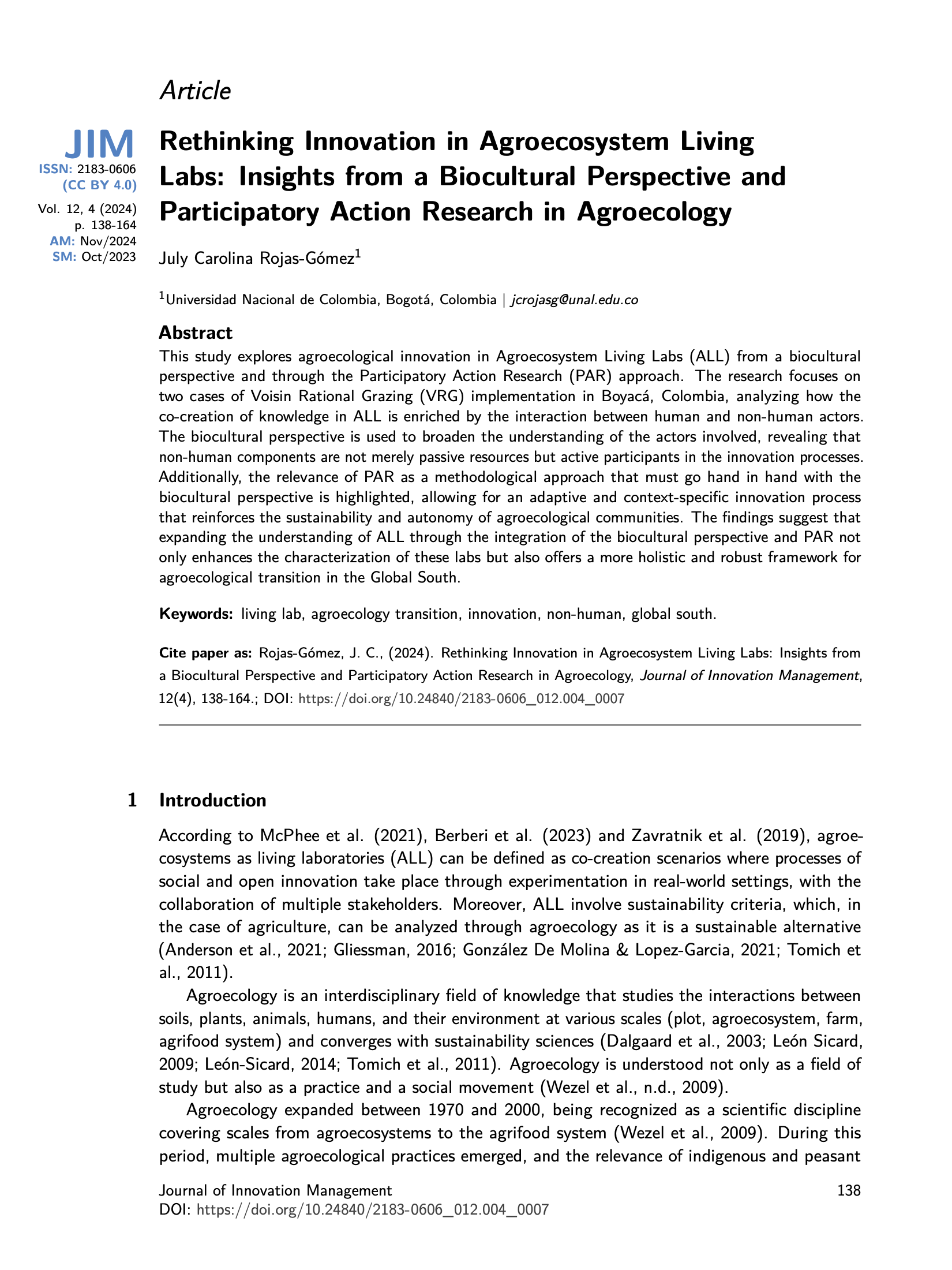Rethinking Innovation in Agroecosystem Living Labs: Insights from a Biocultural Perspective and Participatory Action Research in Agroecology [Special Issue on Living Labs and Collaborative Innovation]
Main Article Content
Abstract
This study explores agroecological innovation in Agroecosystem Living Labs (ALL) from a biocultural perspective and through the Participatory Action Research (PAR) approach. The research focuses on two cases of Voisin Rational Grazing (VRG) implementation in Boyacá, Colombia, analyzing how the co-creation of knowledge in ALL is enriched by the interaction between human and non-human actors. The biocultural perspective is used to broaden the understanding of the actors involved, revealing that non-human components are not merely passive resources but active participants in the innovation processes. Additionally, the relevance of PAR as a methodological approach that must go hand in hand with the biocultural perspective is highlighted, allowing for an adaptive and context-specific innovation process that reinforces the sustainability and autonomy of agroecological communities. The findings suggest that expanding the understanding of ALL through the integration of the biocultural perspective and PAR not only enhances the characterization of these labs but also offers a more holistic and robust framework for agroecological transition in the Global South.
Article Details
Authors who publish with this journal agree to the following terms:
- Authors retain copyright and grant the journal right of first publication with the work simultaneously licensed under a Creative Commons Attribution License that allows others to share the work with an acknowledgement of the work's authorship and initial publication in this journal.
- Authors are able to enter into separate, additional contractual arrangements for the non-exclusive distribution of the journal's published version of the work (e.g., post it to an institutional repository or publish it in a book), with an acknowledgement of its initial publication in this journal.
- Authors are permitted and encouraged to post their work online (e.g., in institutional repositories or on their website) prior to and during the submission process, as it can lead to productive exchanges, as well as earlier and greater citation of published work (See The Effect of Open Access).

